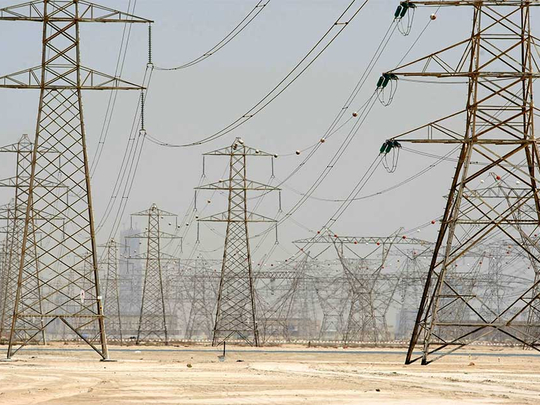
Frankfurt: German engineering group Siemens is working on a deal worth up to 9 billion euros (Dh 39 billion) to supply energy generation technology to Iraq, business daily Handelsblatt reported, citing government and industry sources.
Siemens Chief Executive Joe Kaeser has travelled to Iraq to secure a memorandum of understanding with the country on Sunday, the paper said, adding the deal also involved power transmission technology.
The Iraqi government has not made a decision whether to accept Siemens’ offer, which has also been supported by German Chancellor Angela Merkel this week, Handelsblatt said.
“We had submitted our road map document for repowering Iraq to Prime Minister Haider Jawad Abadi in February,” a Siemens spokesman said in emailed comments, adding the group has had a series of meetings and positive government feedback since then.
“Through our proposal, we aim to add 11 gigawatts of power generation capacity in four years, create thousands of jobs in the country, and support anti-corruption, skills development and education among Iraqis,” the spokesman said.
He did not elaborate on the volume of the potential contract.
The proposal for Iraq, first pitched in February, would include cutting Iraq’s energy losses, introducing smart grids, expanding transmission grids, upgrading existing plants and adding new capacity.
The group would also help the government secure funding from international commercial banks and export credit agencies with German government support, creating thousands of jobs in Iraq.
Siemens would donate a Dhs220 million grant for software for Iraqi universities, it said.
Seimens project in Egypt
The same project was done with Egypt, and in July Siemens succeeded to open 3 power plants there.
Kaeser said in a statement after meeting Prime Minister Abadi comparing the proposal to Egypt projects “In Egypt, we have done the same and successfully built up the power infrastructure in record time with the highest efficiency,” he said.
In 2015, Siemens signed a $9.4 billion deal with Egypt to supply gas and wind power plants to add 16.4 gigawatts of capacity to the country’s power grid, marking the group’s single biggest order.
In July the first phase of the project was completed and Egypt inaugurated several power generation projects, including three power plants built by the German conglomerate Siemens.
Inauguration ceremony was attended by President Abdul Fattah Al Sissi, and government ministers and officials.
The three combined-cycle power plants built by Siemens in Kafr Al Shaikh and Beni Suef provinces and also in the new capital city being built outside of Cairo should provide 14,400 megawatts to Egypt’s national electricity grid at a cost of €6 billion (Dh25.7 billion). The projects also include a massive wind farm in Gabal Al Zeit, on the Red Sea.
The Electricity Ministry’s spokesman, Ayman Hamza, told local media earlier that the plants are part of a wider plan to make Egypt a regional energy hub.
Egypt is planning to generate 20% renewable energy of the total produced amounts by 2022. Egypt’s current Energy production is estimated to be 44,000 MW, including about 2,400 MW produced from water, accounting for 5.5% of the amount, in addition to 1000 MW from wind energy, and 170 MW from solar energy—an equivalent of 2.6%.
Iraq Electricity crisis
Iraq has a wide gap between electricity consumption and supply. Peak demand in the summer, when people turn on air conditioners due to high temperatures. According to the Ministry of Electricity Iraq produces 15,700 megawatts while it needs 23,000 per hour for a non-stop supply.
People in Baghdad get 20 hours of electricity a day while other provinces get 12 hours.
More than $40 billion was spent on electricity in Iraq, but the electricity crisis continues to spark popular anger due to mismanagement by energy ministries in consecutive governments.
Last month, Iraq’s prime minister, Haider Abadi, sacked a number of electricity ministry officials in the latest attempt to quell public anger at chronic power cuts. He dismissed the electricity minister Qassim Fahdawi “because of the deterioration in the electricity sector”.
- With inputs from Reuters












